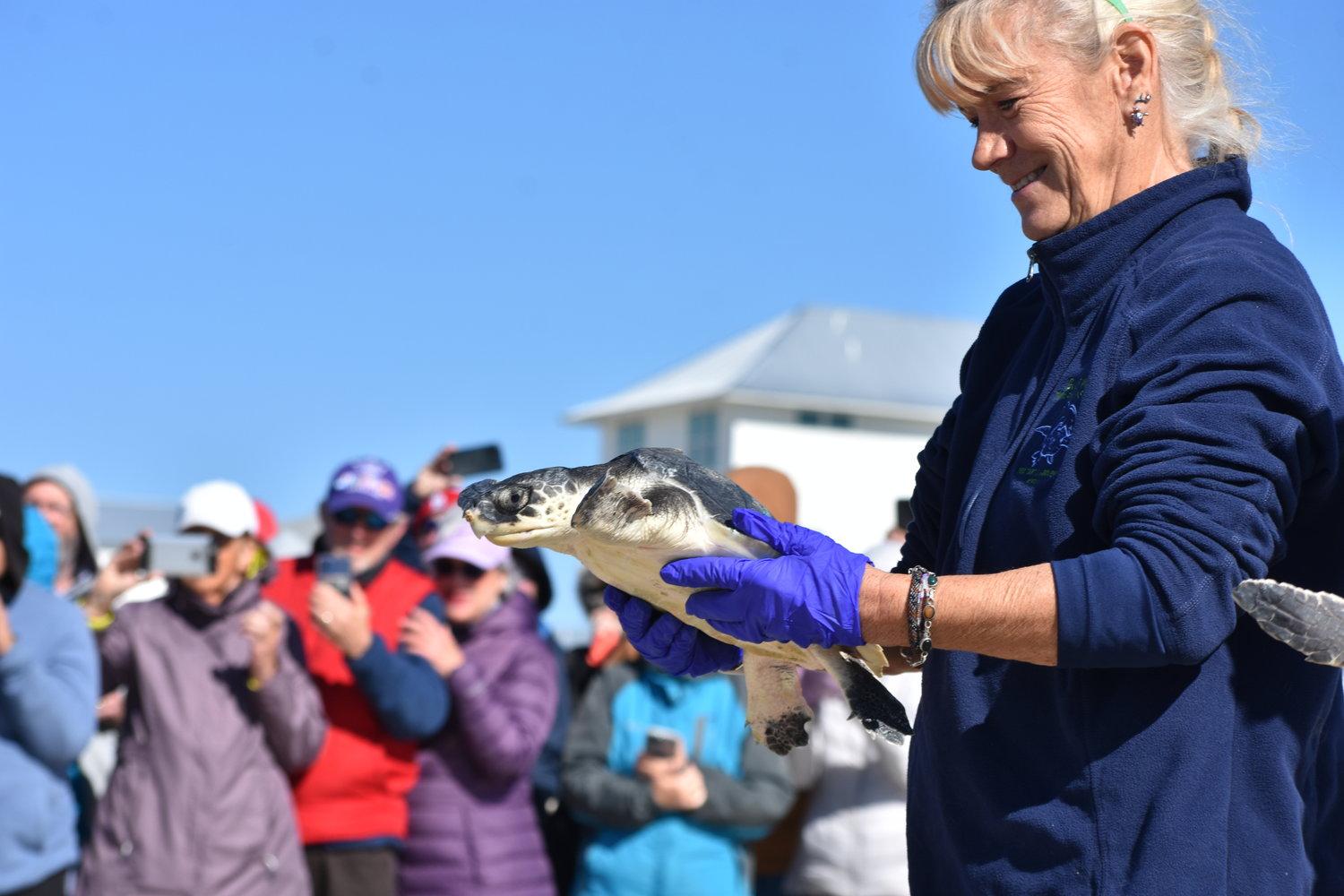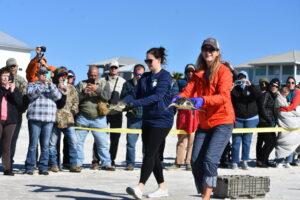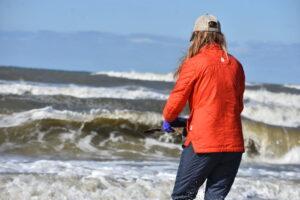Cold-stunned sea turtles released into water off Cape San Blas
Sea turtles can become immobilized, or “cold-stunned,” when water temperatures dip below 50 degrees.
They float to the surface, and many wash ashore, where, if they’re lucky, they can be found by beach-goers before they succumb to exposure, predation or injuries.
This is what happened to five juvenile turtles, who, to the cheers of an enthusiastic crowd, were released into the Gulf of Mexico at Cape Palms Park on Thursday after spending more than a month in a rehabilitation facility in Panama City.
“The release is the fun part, because (the turtles) have been in rehab, and they’re feeling good, and they can go back out into the water,” said Carol Buikema, a local volunteer for the Florida Coastal Conservancy.
One of the five turtles, Buikema said, had been discovered by volunteers with the organization in the St. Joseph Bay during the cold snap in December.
“Four of them were Kemp’s (Ridleys) who came from Cape Cod,” she said. “But one was a Green (Sea) Turtle from our Christmas rescue. It’s really a reward for us to see them released.”
The turtles, who were attended to at the rehab facility at Gulf World Marine Institute, were some of hundreds the institute has returned to health this year.
According to Lauren Albrittain, a stranding coordinator for the Gulf World Marine Institute, more than 140 turtles from local waters were helped by the organization following the December cold snap.
“When we first had the cold snap, we had 155 total. That little Green is one of the few that’s left from it, so we’ve released most of them already,” she said. “And that was a quiet year for here. The biggest year that we’ve had here was around 1,800.”
But Albrittain said there are still about 30 cold stunned turtles left in the organization’s care, mostly from New England.
“We still have many of the New England turtles as well as a handful of the local strandings from the St. Joseph Bay here,” she said. “We still have some that are on antibiotics, but when they are off of those, they will still have to get cleared by a medical team, and then we have to get clearance from the FWC as well before they are released.”
Both Kemp’s Ridley and Green Sea Turtles are listed as being endangered, with Kemp’s Ridley being the world’s most endangered species of sea turtle.
“Every release is special and important. That’s why we do what we do. The work that we put into bringing these animals back to health is incredible work, and this is the end result,” said Albrittain. “We just really hope that these animals continue to thrive and contribute to the reproductive population. These ones in particular have many years to go before they’re at that age, but all we can do is give them their best chance.”
While cold stuns in Florida typically only happen during the cold winter months, Albrittain said the Gulf World Marine Institute helps stranded turtles year-round, with many coming to the organization after injury or illness.
She encouraged beach-goers to report stranded turtles and marine mammals to the FWC’s wildlife alert hotline by calling *#FWC.
Both the marine institute and the Florida Coastal Conservancy are non-profit organizations. For more information, visit their websites at https://www.gwmi.info/ and http://floridacc.org/.




Meet the Editor
David Adlerstein, The Apalachicola Times’ digital editor, started with the news outlet in January 2002 as a reporter.
Prior to then, David Adlerstein began as a newspaperman with a small Boston weekly, after graduating magna cum laude from Brandeis University in Waltham, Massachusetts. He later edited the weekly Bellville Times, and as business reporter for the daily Marion Star, both not far from his hometown of Columbus, Ohio.
In 1995, he moved to South Florida, and worked as a business reporter and editor of Medical Business newspaper. In Jan. 2002, he began with the Apalachicola Times, first as reporter and later as editor, and in Oct. 2020, also began editing the Port St. Joe Star.